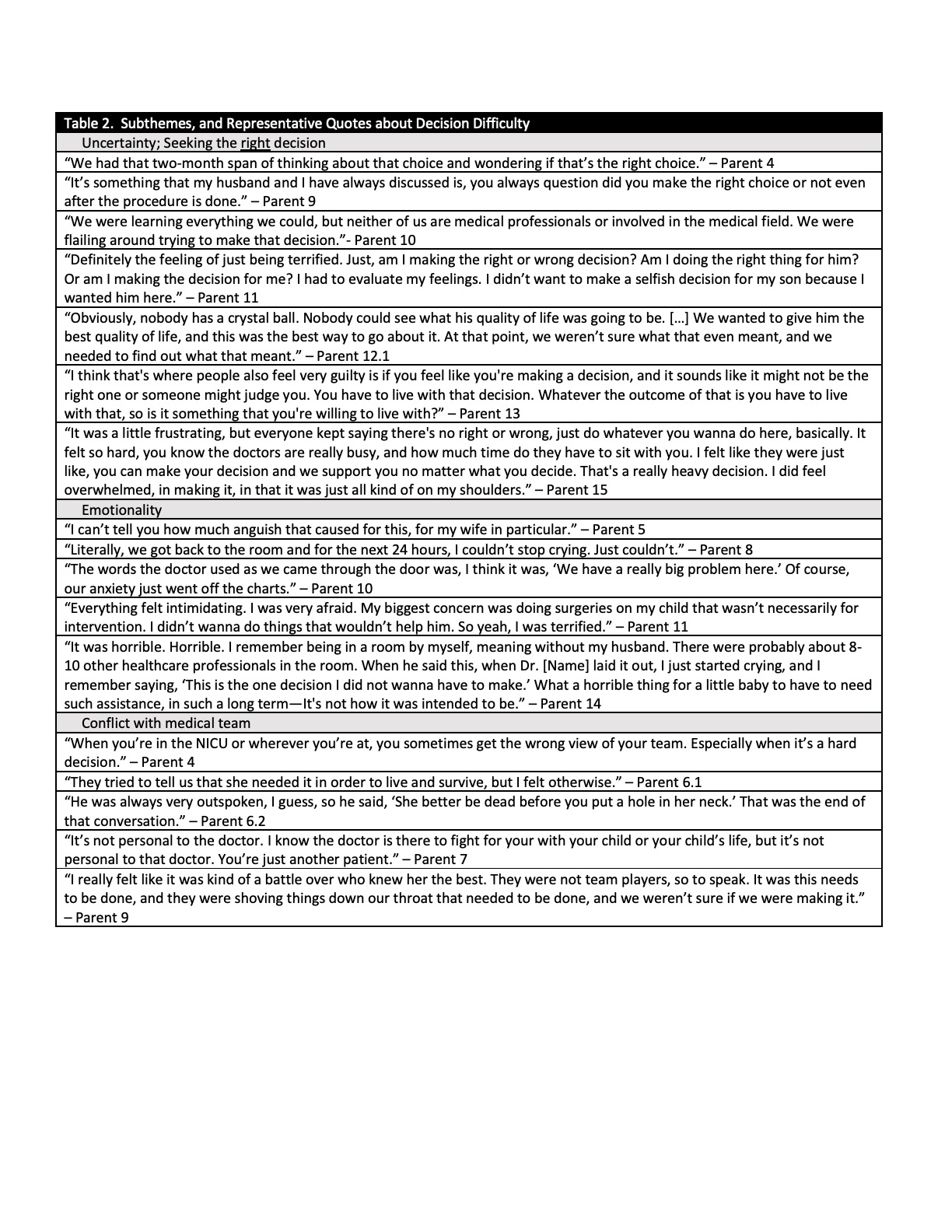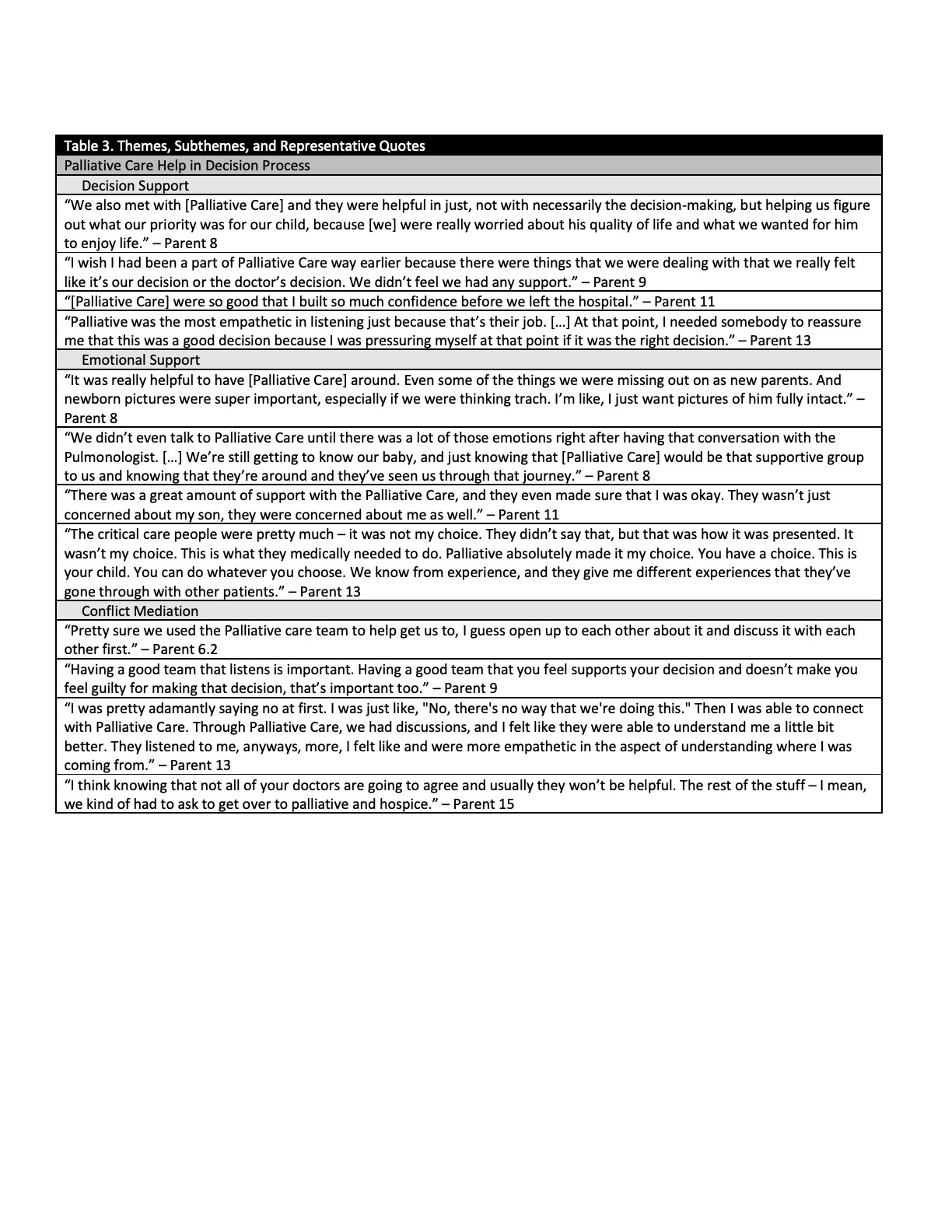Palliative Care
Session: Palliative Care
162 - Decision Difficulty and Support from Palliative Care Consultation in Pediatric Tracheostomy Decision-Making: A Qualitative Study of Parents’ Perspectives
Saturday, May 4, 2024
3:30 PM - 6:00 PM ET
Poster Number: 162
Publication Number: 162.1338
Publication Number: 162.1338
- RC
Rachel G. Clarke, MD (she/her/hers)
Assistant Professor
State University of New York Upstate Medical University
Syracuse, New York, United States
Presenting Author(s)
Background: Tracheostomy placement for a child is a high-stakes choice, requiring parents to weigh the prospects of a life-support dependent future vs. prioritizing comfort with the possibility of allowing death. Better understanding of the tracheostomy decision process from parents’ perspectives is essential.
Objective: To obtain insight into parents’ experiences and advice regarding complex tracheostomy decision-making (DM).
Design/Methods: Children for whom a tracheostomy was considered between 2019-2022 at a single quaternary center were identified using a medical record term search. Participants were excluded if tracheostomy was deemed to be in the clear best interest of the child (no decision necessary). Parents were invited to be interviewed following an electronic survey on experiences making a tracheostomy decision for their child. We selected a sample of parents representing diversity of decisions (tracheostomy, delay, comfort care, or other) and outcomes (alive with tracheostomy, alive with tracheostomy removed, alive without tracheostomy, or deceased) as well as parent race and gender. Interviews continued until thematic saturation was reached. Two study team members coded transcripts inductively with open coding and then convened to determine the most prominent themes. Parent and child characteristics were analyzed with descriptive statistics.
Results: Analysis included 15 interviews of 17 parents. Respondent characteristics shown in Table 1. The first major theme, which nearly every parent discussed despite their children’s variable diagnoses and outcomes, was “difficulty of decision” around tracheostomy. Subthemes included “grappling with uncertainty", “emotionality”, and “conflict with the care team” (exemplary quotes in Table 2). Though queries about PC consultation were not specifically included in the interview guide, the second major theme identified was “support from palliative care (PC).” 14/15 respondents experienced PC consultations. 11/14 (79%) who experienced PC found it helpful or very helpful; 2 were neutral, and 1 found it unhelpful. Subthemes around specific help PC team provided mirrored subthemes of what made DM difficult, including: “coping with uncertainty,” “emotional support,” and “mediating conflict” (exemplary quotes in Table 3).
Conclusion(s): Parents who participated in a decision regarding tracheostomy for their child reported benefits of decision support, emotional support, and conflict mediation from Palliative Care during the DM process. Palliative Care providers can assist with DM and offer support to parents when disagreements with the medical team arise.
.jpg)


